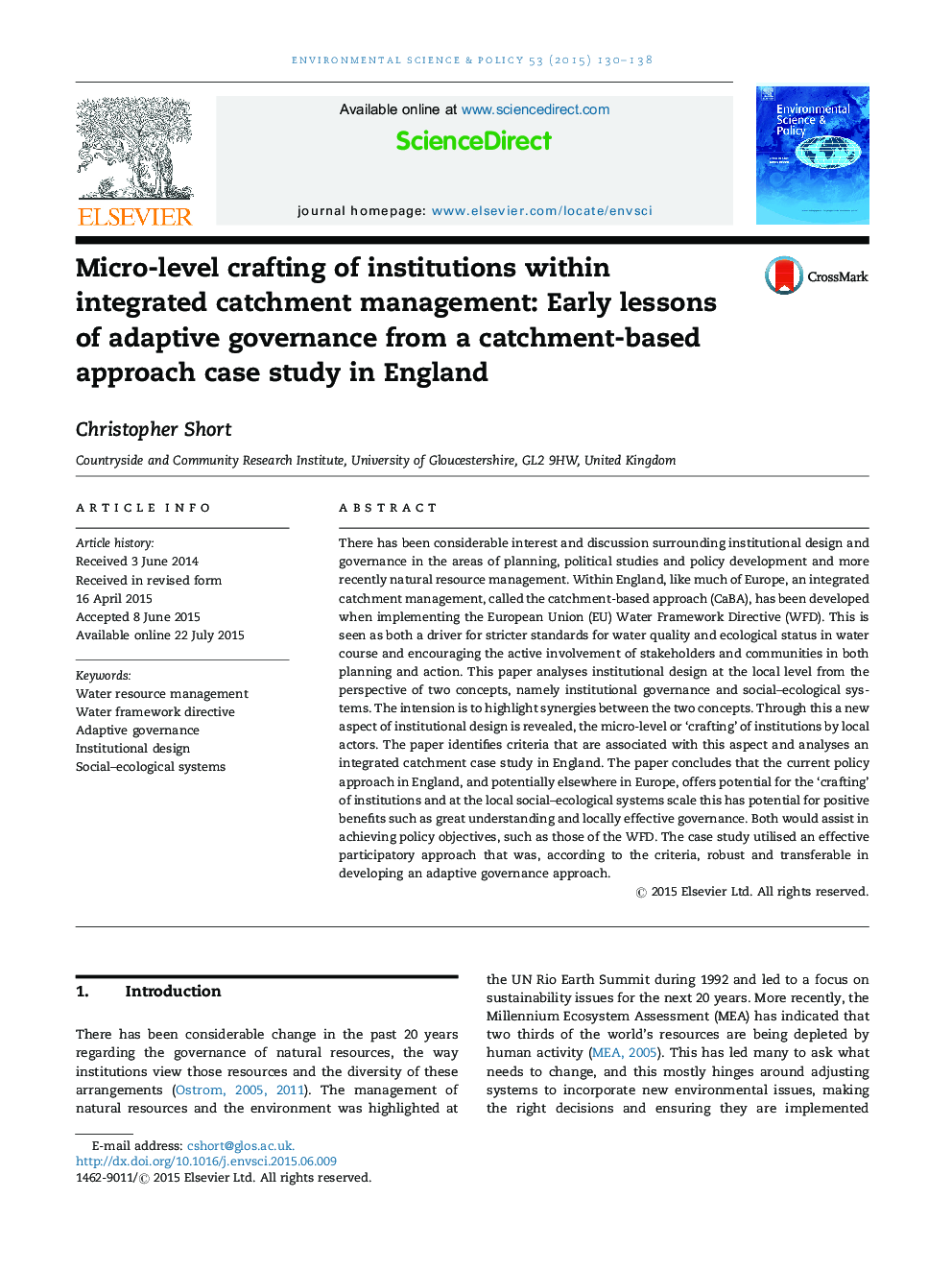| Article ID | Journal | Published Year | Pages | File Type |
|---|---|---|---|---|
| 10504580 | Environmental Science & Policy | 2015 | 9 Pages |
Abstract
There has been considerable interest and discussion surrounding institutional design and governance in the areas of planning, political studies and policy development and more recently natural resource management. Within England, like much of Europe, an integrated catchment management, called the catchment-based approach (CaBA), has been developed when implementing the European Union (EU) Water Framework Directive (WFD). This is seen as both a driver for stricter standards for water quality and ecological status in water course and encouraging the active involvement of stakeholders and communities in both planning and action. This paper analyses institutional design at the local level from the perspective of two concepts, namely institutional governance and social-ecological systems. The intension is to highlight synergies between the two concepts. Through this a new aspect of institutional design is revealed, the micro-level or 'crafting' of institutions by local actors. The paper identifies criteria that are associated with this aspect and analyses an integrated catchment case study in England. The paper concludes that the current policy approach in England, and potentially elsewhere in Europe, offers potential for the 'crafting' of institutions and at the local social-ecological systems scale this has potential for positive benefits such as great understanding and locally effective governance. Both would assist in achieving policy objectives, such as those of the WFD. The case study utilised an effective participatory approach that was, according to the criteria, robust and transferable in developing an adaptive governance approach.
Keywords
Related Topics
Physical Sciences and Engineering
Energy
Renewable Energy, Sustainability and the Environment
Authors
Christopher Short,
